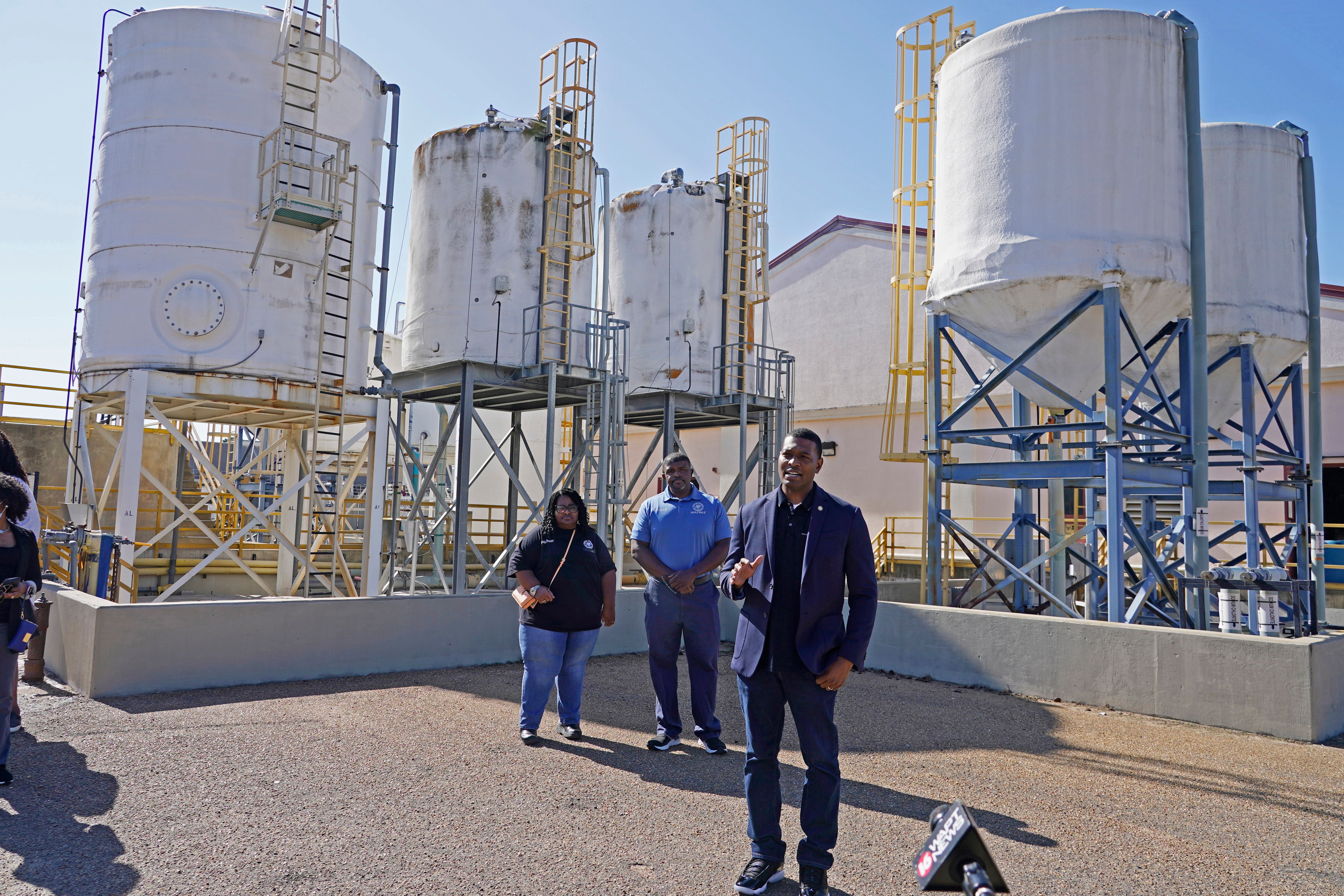Mississippi capital city struggles with aging water system
Mississippi's capital city struggles with an unreliable water system that has problems with both quality and distribution

Your support helps us to tell the story
From reproductive rights to climate change to Big Tech, The Independent is on the ground when the story is developing. Whether it's investigating the financials of Elon Musk's pro-Trump PAC or producing our latest documentary, 'The A Word', which shines a light on the American women fighting for reproductive rights, we know how important it is to parse out the facts from the messaging.
At such a critical moment in US history, we need reporters on the ground. Your donation allows us to keep sending journalists to speak to both sides of the story.
The Independent is trusted by Americans across the entire political spectrum. And unlike many other quality news outlets, we choose not to lock Americans out of our reporting and analysis with paywalls. We believe quality journalism should be available to everyone, paid for by those who can afford it.
Your support makes all the difference.The unreliable water system in Mississippi s capital city causes problems several times a year at Styles of Essence hair salon, where water service can suddenly get cut off as workers repair broken pipes nearby.
Owner and stylist Belinda Smith keeps more than a dozen jugs of water in the small shop in south Jackson stashed under sinks and along the base of a wall painted with the slogan, “Jesus Is Lord.” Even if water stops flowing from the city system, she needs to rinse chemicals off her customers' hair.
“I have been in here and they will turn off the water without letting me know,” Smith said Wednesday. “You don’t want to get into a situation where you didn’t fill your bottles back up.”
Jackson has longstanding, expensive-to-fix problems with its aging water system, and the EPA issued a notice Tuesday that the system violates the federal Safe Drinking Water Act. The order directs the city to outline a plan to “correct the significant deficiencies identified” in an EPA report within 45 days.
Like many older cities around the U.S., Jackson faces more water system problems that it can afford to fix. The tax base of Mississippi's capital has eroded over the past few decades as the population has decreased — the result of mostly white flight to suburbs that began after public schools integrated in 1970. The city's population is now more than 80% Black with about 25% of residents living in poverty.
After arctic weather blanketed parts of the South last February, equipment froze in a Jackson water treatment plant. For weeks, tens of thousands of people were left with no running water or water pressure that was dangerously low. The city ran distribution sites where people brought buckets to pick up water to bathe or flush toilets. The National Guard helped distribute cases of drinking water, and volunteers delivered bottled water to people without access to transportation.
When water pressure drops, there’s a possibility that untreated groundwater can enter a water system through cracked pipes, so customers are told to boil water to kill potentially harmful bacteria. Jackson customers had to boil their water for a month after the problems in 2021.
The city is experiencing water woes again this week because temperatures dipped below freezing and caused problems with membranes in a treatment plant. Crews have been scrambling to fix newly broken pipes, and several Jackson schools closed for in-person instruction because they had no water or low pressure.
EPA Administrator Michael Regan traveled to Mississippi in mid-November as part of a five-day tour of low-income, mostly minority communities in the South. On the day he was in Jackson to look at water problems, he visited an elementary school that was temporarily closed because of water issues. Even when classes were in session, students and teachers had to use portable toilets outside because of low water pressure.
In addition to water pressure, Jackson has also had water quality problems for years. Because of concerns about lead levels, the city has long told people to avoid using hot tap water for drinking or cooking and to only use filtered or bottled water for baby formula.
Sybil Smith lives in south Jackson, the part of the city most likely to have water pressure problems because it's far from the treatment plants. She said Wednesday that she worries that the city water might harm her and her family.
“Personally, I don't drink it,” said Sybil Smith, a retired hospital employee who's not related to Belinda Smith at the hair salon.
Sybil Smith said she and her husband typically keep several cases of bottled water stockpiled in their home. During the cold snap last February, they had no running water for a few days and low pressure for many more.
Jackson will request at least $42 million for short-term water system repairs as state legislators consider how to spend Mississippi’s share of federal pandemic relief money, said Justin Vicory, who works in communications for Jackson Mayor Chokwe Antar Lumumba
Legislators have not decided how much federal money to spend on water and sewer systems statewide, although an initial proposal is about $750 million. Jackson is run by Democrats and the Legislature is run by Republicans. The Legislature is also known for protecting rural interests, splitting money as widely as possible.
____
Associated Press reporter Matthew Daly contributed to this report from Washington.